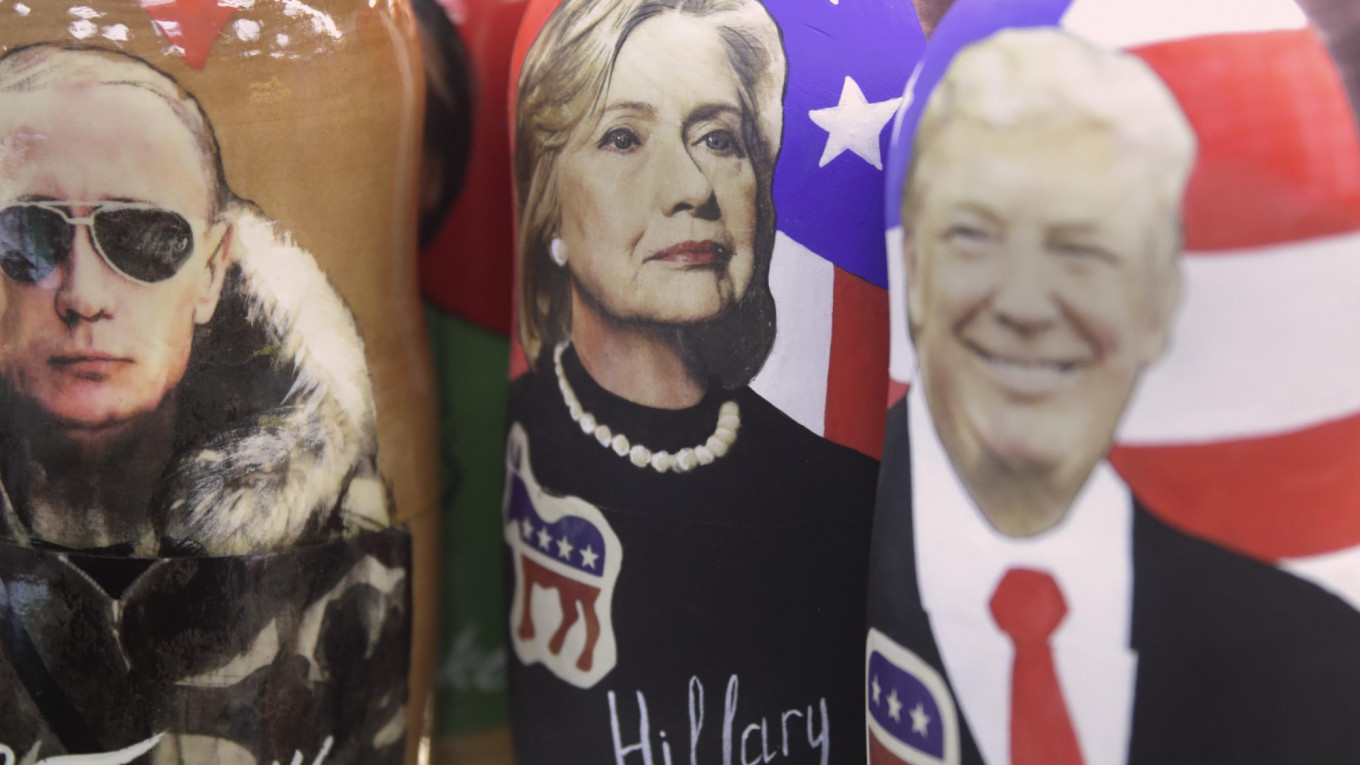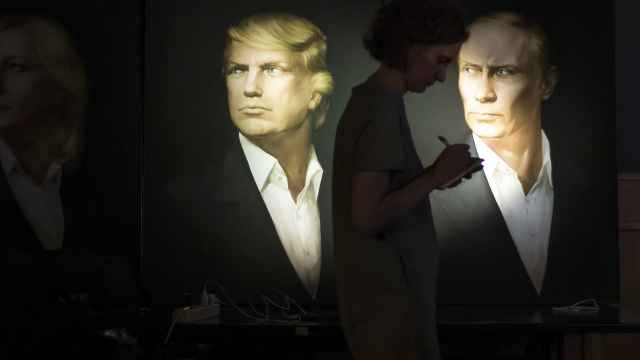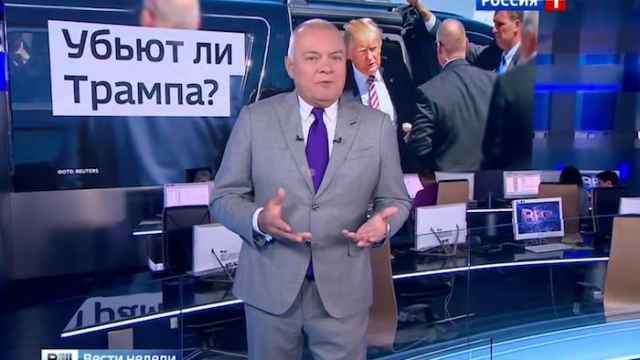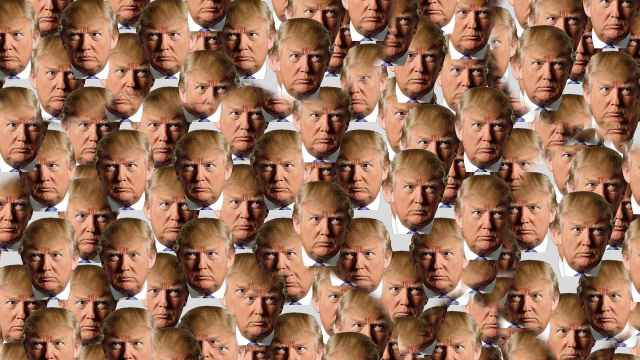Donald Trump’s election as the 45th U.S. President may have caused some irrational exuberance in Moscow, but there is also a palpable sense of apprehension within the Kremlin. The message to Russia is simple: Be careful what you wish for.
President Putin was among the first world leaders to congratulate Trump on his victory, expressing hope for a mutual re-engagement to elevate the U.S.-Russia relationship from its deep crisis under the Obama administration. Putin has been on record since late 2015 stating that he welcomes Trump’s willingness to “improve relations with Russia.” Trump also stressed repeatedly during the campaign that he would work with President Putin. “I think I’d be able to get along with him,” he said back in September.
On the campaign trail, Trump has said a number of things that are music to Moscow's ears. He endorsed Russia’s approach to the war in Syria, promising to work with Moscow and Assad’s government to defeat ISIS, while withdrawing support for the Islamist rebels. This is close to Putin’s proposal in September 2015 for a “broad international coalition against terrorism.”
He promised “to look into” recognizing Russia’s sovereignty over Crimea, which would up-end the current U.S. policy of “non-recognition” and eliminate the most viable justification for anti-Russian sanctions. He also said that the war in the Donbass is “Germany’s problem,” hinting at withdrawing unquestioned U.S. support for Kiev’s stonewalling on implementing the Minsk agreements.
He promised to unravel the U.S. free trade agreements like NAFTA, the Transpacific Trade Partnership and the Transatlantic Trade and Investment Partnership talks with Europe, a key geopolitical concern for Moscow, which felt excluded from developing global trade rules. Trump’s promises to raise tariffs on Chinese exports and force China to revalue its currency would plunge the U.S.-China relationship into a deep crisis, bringing Beijing closer to Moscow.
Russia could only welcome Trump’s signature campaign pledge to rebalance America’s security alliances, pushing NATO and Asian allies to pay more for their defense (hardly a novel policy proposal), while rejecting costly U.S. commitments abroad and applying a narrow, “realist” definition of American interests. An America with a significantly reduced global footprint, retrenched into a deep political crisis and even a new recession, embroiled in contentious squabbles with its allies, an America with a diminished international power and prestige could be good for Russia. It would certainly have considerably less time and will to challenge Russia’s assertiveness in the former Soviet-space and in the Middle East. Trump also has little appetite for criticising Russia’s democracy.
A liberal, normative world order underpinned by U.S. leadership, could be replaced with the “art of the geopolitical deal” between the great powers. Trump even suggested he might meet with Vladimir Putin before the inauguration. What is there for Moscow not to like?
Yet, there is concern that Trump’s foreign policy positions, when fully fleshed out, may not be comforting to Moscow. His lack of vision and attention to detail will ensure that the Republican national security establishment and the non-partisan, careerist foreign policy bureaucracy, who are strongly critical of Russia, would take over policy development and implementation. This will wash down some of Trump’s more fanciful ideas.
A lot will depend on who will be appointed to key national security jobs in the Trump administration. Some of the figures, being mentioned within the Trump circle, like former CIA Director Jim Woolsey, former UN Ambassador John Bolton, Republican Senators Bob Corker and Jeff Sessions raise flags in Moscow. Others, like former National Security Advisor Stephen Hadley, a top pick for the DOD, will be welcome partners for the Kremlin.
Although Republican control over both houses of Congress may mean a repeal of Obama’s domestic legacy, on foreign policy, particularly on U.S.-Russia relations, the Republican Congress will be a constraint on President Trump. Most Republicans in Congress have so far been much harder on Russia, criticizing the Obama administration’s opposition to new anti-Russia sanctions over Syria and Ukraine. Even Trump’s own Vice-President Mike Pence during the campaign promised a forceful push back against “Russian aggression in Ukraine and Syria.” Trump may find it hard to move too close to Putin’s Russia against significant congressional opposition and calls for reasserting U.S. primacy. He will not be in a position, for example, to repeal the Magnitsky Act, a key Russian demand for normalizing relations.
Trump’s impulsiveness and unpredictability, particularly his penchant for going personal, unnerve the Kremlin. Moscow has used unpredictability as one of its key foreign policy tools, but that was predicated on the rationality of the U.S. response to Russia’s assertiveness. Having an equally unpredictable partner in Washington may actually limit Moscow’s freedom of maneuver.
There’s also fear that Trump’s pledge “to make America great again,” when translated into security policy, may result in a Reagan-style military build up, including strategic nuclear weapons modernization and ABM programs, a prospect Moscow does not relish. Trump’s conflicts with U.S. allies may create new regional instability, prompting Japan and South Korea to become nuclear weapons states, or unravelling the Iran nuclear deal. This could hurt Russian interests and diminish Russian power.
The Kremlin will re-engage with Trump to test what the traffic will bear. Cooperation on Syria has the most potential, provided Moscow moderates some of Assad's goals for a complete military victory. A return to Kerry-Lavrov agreement on joint operations against ISIS and Nusra is possible, but Trump cannot afford to be seen as weak by giving Moscow a free hand in bombing Syria. In other areas, like Ukraine or nuclear arms control, Moscow would have to put something new and constructive on the table for re-engagement to be productive and sanctions relief feasible.
A Message from The Moscow Times:
Dear readers,
We are facing unprecedented challenges. Russia's Prosecutor General's Office has designated The Moscow Times as an "undesirable" organization, criminalizing our work and putting our staff at risk of prosecution. This follows our earlier unjust labeling as a "foreign agent."
These actions are direct attempts to silence independent journalism in Russia. The authorities claim our work "discredits the decisions of the Russian leadership." We see things differently: we strive to provide accurate, unbiased reporting on Russia.
We, the journalists of The Moscow Times, refuse to be silenced. But to continue our work, we need your help.
Your support, no matter how small, makes a world of difference. If you can, please support us monthly starting from just $2. It's quick to set up, and every contribution makes a significant impact.
By supporting The Moscow Times, you're defending open, independent journalism in the face of repression. Thank you for standing with us.
Remind me later.







